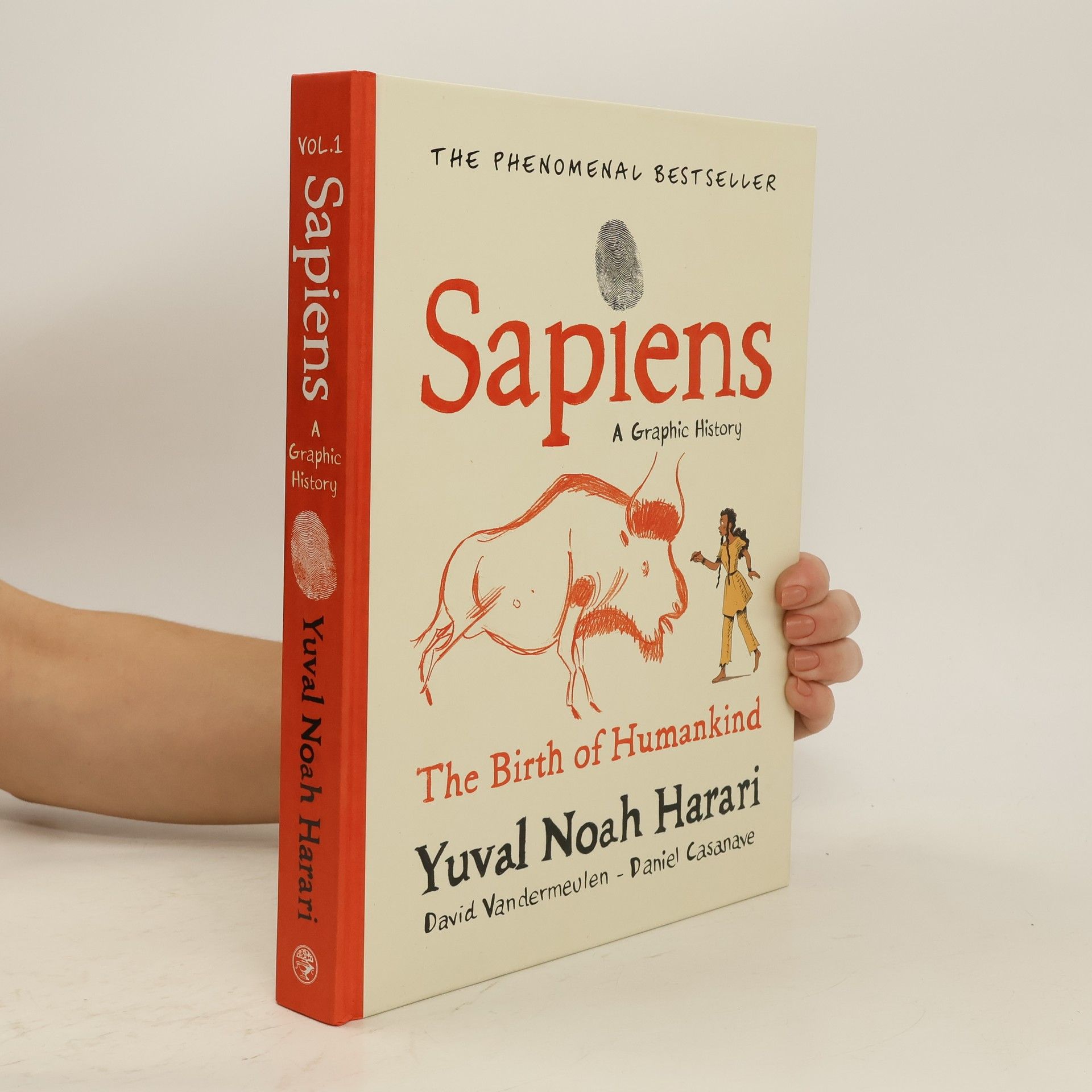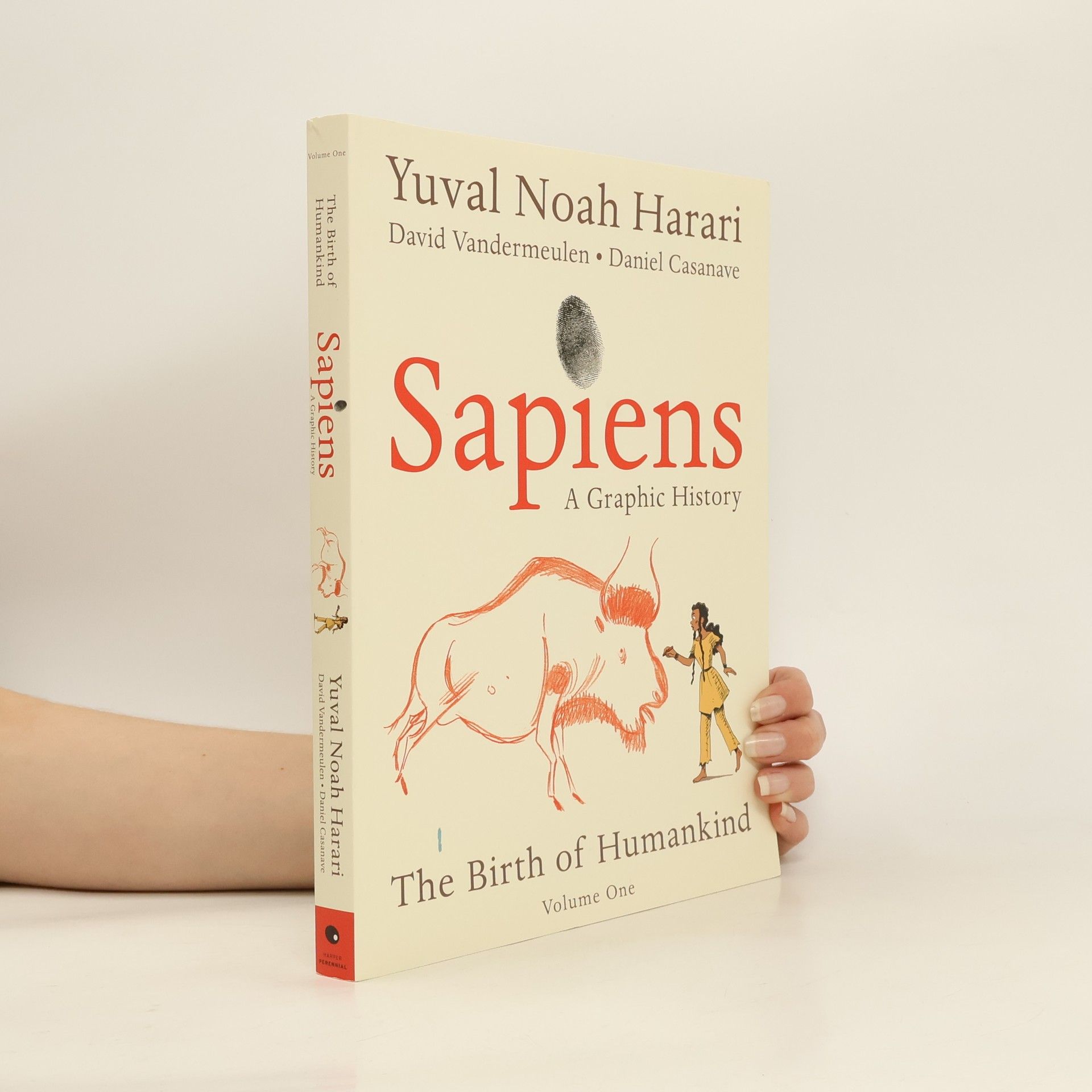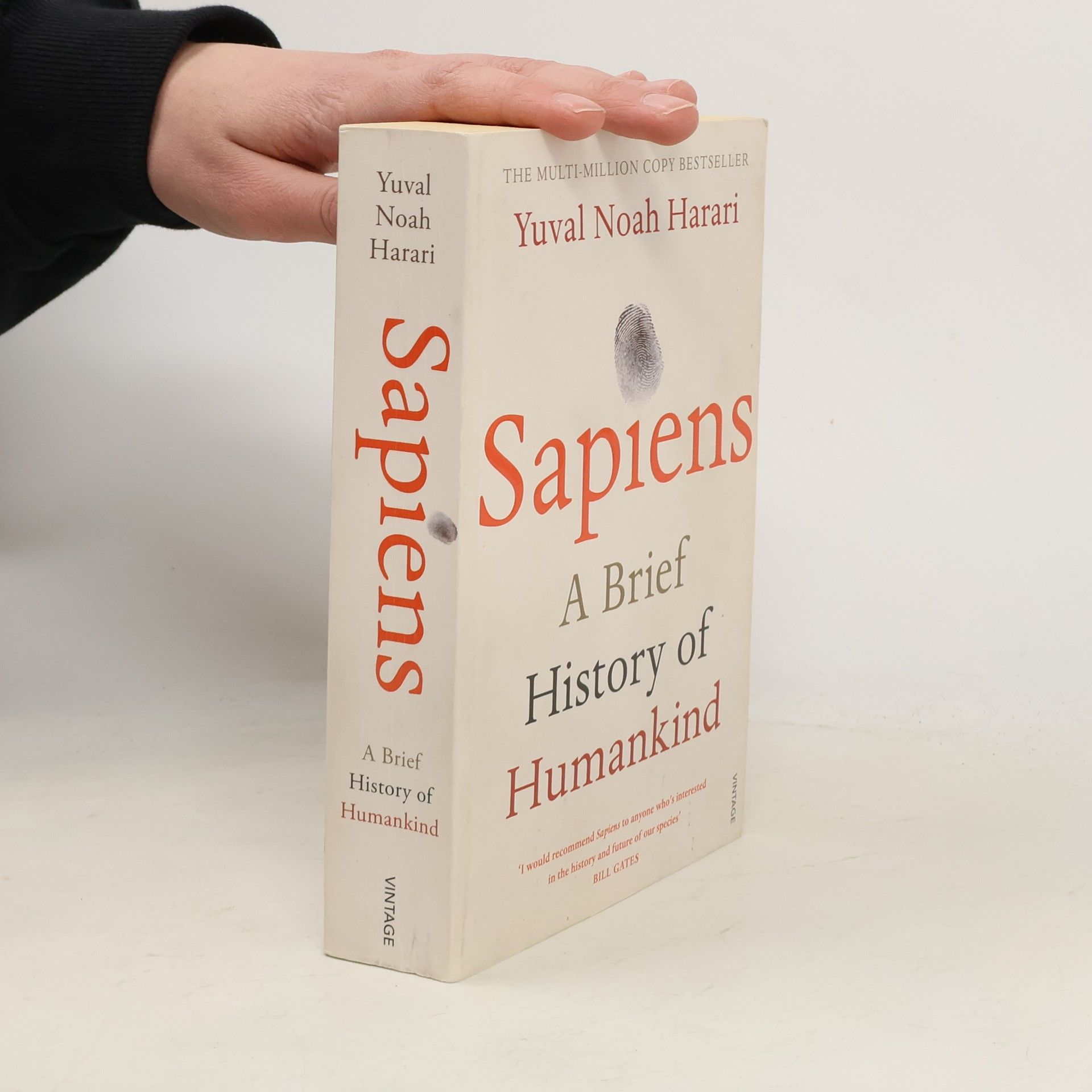The book includes two exclusive essays by Yuval Noah Harari that delve into pressing contemporary issues. "The Crisis of Liberalism" explores the challenges facing liberal democracies today, while "The Theater of Terror" examines the impact of fear and spectacle in modern society. Harari's insights provide a thought-provoking analysis of political and social dynamics, encouraging readers to reflect on the future of governance and the influence of terror in shaping public perception and policy.
Yuval Noah Harari Books
This author engages with macro-historical questions, exploring the relationship between history and biology. They delve into the unique nature of Homo sapiens and ponder whether people have become happier as history has unfolded. Their work often challenges our understanding of progress, examining if history possesses a direction or inherent justice. Readers appreciate their ability to connect vast historical knowledge with profound reflections on the human condition.







*From the author of the multi-million bestselling Sapiens comes an incredible new story of the human race, for younger readers.* We humans aren't strong like lions, we don't swim as well as dolphins, and we definitely don't have wings! So how did we end up ruling the world? The answer to that is one of the strangest tales you'll ever hear. And it's a true story . . . Have you ever wondered how we got here? From hunting mammoths, to flying to the moon? It is because we are unstoppable. But what made us so? Well, we have the most amazing superpower: the ability to tell stories. Fairy tales have led us from imagining ghosts and spirits to being able to create money (yes, really!). And this has made us very powerful . . . but very deadly. Nothing stands in our way, and we always want more. So get ready for the most amazing story there ever was - the incredible true tale of the Unstoppables. Find out how fire shrank our stomachs, how our ancestors spoke to animals, what football can tell us about being human, how we used our superpower for good and bad . . . and how YOU have the superpower to change the world. With full-colour illustrations showing the relentless rise and rise of the human race, this is history like you've never experienced it before.
Sapiens. Volume one, The Birth of Humankind
- 248 pages
- 9 hours of reading
In the second "Sapiens" volume, Yuval Noah Harari tells the story of how we took over the world; how an unlikely marriage between a god and a bureaucrat created the first empires; and how war, famine, disease, and inequality became a part of the human condition. The origins of modern farming are introduced through Elizabethan tragedy, the changing fortunes of domesticated plants and animals are tracked in the columns of the Daily Business News, and the story of urbanization is told as a travel brochure offering discount journeys to ancient Babylon and China.
Yuval Noah Harari Box Set
Sapiens; Homo Deus; 21 Lessons for the 21th Century
Sapiens A Graphic History, Volume 3
- 288 pages
- 11 hours of reading
Exploring the dynamics of history, this graphic installment delves into the forces that shape civilizations, including money, religion, and empire. With a humorous guide, Heroda Tush, readers encounter a colorful cast of characters, each representing different historical influences, from luck to conquest. This engaging narrative invites reflection on humanity's turbulent journey and the recurring conflicts that challenge our unity. Ideal for readers of all ages, it can be enjoyed independently or as part of the ongoing series.
Sapiens: A Graphic History: The Birth of Humankind (Vol. 1)
- 256 pages
- 9 hours of reading
The first volume, in a hardcover edition for libraries, of the graphic adaptation of Yuval Noah Harari's smash #1 New York Times and international bestseller recommended by President Barack Obama and Bill Gates, with gorgeous full-color illustrations and concise, easy to comprehend text for readers of all ages. One hundred thousand years ago, at least six different species of humans inhabited Earth. Yet today there is only one--homo sapiens. What happened to the others? And what may happen to us? In this first volume of the full-color illustrated adaptation of his groundbreaking book, renowned historian Yuval Harari tells the story of humankind's creation and evolution, exploring the ways in which biology and history have defined us and enhanced our understanding of what it means to be "human." From examining the role evolving humans have played in the global ecosystem to charting the rise of empires, Sapiens challenges us to reconsider accepted beliefs, connect past developments with contemporary concerns, and view specific events within the context of larger ideas. Featuring 256 pages of full-color illustrations and easy-to-understand text covering the first part of the full-length original edition, this adaptation of the mind-expanding book furthers the ongoing conversation as it introduces Harari's ideas to a wide new readership. --Wall Street Journal
Sapiens : a graphic history. Volume one, The birth of humankind
- 256 pages
- 9 hours of reading
"In this first volume of the full-color illustrated adaptation of his groundbreaking book, renowned historian Yuval Harari tells the story of humankind's creation and evolution, exploring the ways in which biology and history have defined us and enhanced our understanding of what it means to be 'human'. From examining the role evolving humans have played in the global ecosystem to charting the rise of empires, Sapiens challenges us to reconsider accepted beliefs, connect past developments with contemporary concerns, and view specific events within the context of larger ideas."--Publisher's description
Earth is 4.5 billion years old. In just a fraction of that time, one species among countless other have conquered it: us. What makes us brilliant? What makes us deadly? What makes us sapiens? In this bold and provocative book, Yuval Noah Harari explores who we are, how we got here, and where we're going. Sapiens is the thrilling account of our history -- from insignificant apes to rulers of the world. (taken from the inside cover)
Exploring the forces that shape humanity's destiny, this volume delves into the roles of empire, money, and religion in unifying people throughout history. The illustrated adaptation of the bestselling phenomenon presents complex ideas in an accessible format, engaging readers with thought-provoking themes about what truly drives human society.
From world-renowned historian and philosopher Yuval Noah Harari, the New York Times bestselling author of Sapiens, comes an exciting, brand-new illustrated book for middle-grade readers that looks at the early history of humankind. Even though we’ll never outrun a hungry lion or outswim an angry shark, humans are pretty impressive—and we’re the most dominant species on the planet. So how exactly did we become “unstoppable”? The answer to that is one of the strangest tales you’ll ever hear. And it’s a true story. From learning to make fire and using the stars as guides to cooking meals in microwaves and landing on the moon, prepare to uncover the secrets and superpowers of how we evolved from our first appearances millions of years ago. Acclaimed author Yuval Noah Harari has expertly crafted an extraordinary story of how humans learned to not only survive but also thrive on Earth, complete with maps, a timeline, and full-color illustrations that bring his dynamic, unputdownable writing to life.

